Speaker
Description
University of Latvia, Faculty of Chemistry, Jelgavas iela 1, Riga, Latvia
e-mail: ainasemjonova@gmail.com
Active pharmaceutical ingredients (APIs) can have different physical properties (e.g., solubility [1] and bioavailability) depending on polymorph form. Many APIs have low solubility in water. Crystallization of metastable form can enhance solubility and bioavailability [2]. Unfortunately, their crystallization can be complicated due to concomitant crystallization with a stable form [3].
In this study, 2,6-dimethoxybenzoic acid (2,6-MeOBA) was used as a model substance to investigate the additive crystallization control approach. 2,6-MeOBA exists as three polymorphs. Form I form has a carboxylic group in anti-conformation, whereas forms II and III are syn-conformation [4, 5] (see Fig. 1).
Fig. 1. Relationships with 2,6-MeOBA conformations and polymorphs. The connection between forms I and III is proven in this study.
In the study, two of 2,6-MeOBA polymorphs were characterized by thermal analysis and thermodynamical stability was determined. 2,6-MeOBA was crystallized under different conditions. Water was selected for additive screening. Different molecular compounds with divergent intermolecular interaction possibilities were used as additives. The solid forms obtained in crystallization were characterized with powder X-ray diffraction.
Forms I and III are enantiotropic related. Hydroxypropyl cellulose and polyethylene glycol showed the potential to favor the formation of form III by crystallizing from water.
Acknowledgment
This work was supported within the Project identification No. 8.2.2.0/20/I/006.
References:
[1] Pudipeddi, M.; Serajuddin, A. T. M. J. Pharm. Sci. 2005, 94 (5), 929–939.
[2] Censi, R.; Martino, P. di. Molecules 2015, 20, 18759–18776.
[3] Tang, W.; Sima, A. D.; Gong, J.; Wang, J.; Li, T. Cryst. Growth Des. 2020, 20 (3), 1779–1788.
[4] Portalone, G. Acta Cryst. E 2020, 76 (12), 1823–1826.
[5] Pal, R. et al. J. Mol. Struct. 2020, 1221.

